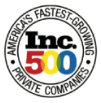In the ever-evolving world of facility management, digital transformation has become a key driver of efficiency and effectiveness. Leveraging advanced facility management software is at the heart of this transformation, enabling facility managers to streamline operations, enhance communication, and make data-driven decisions.
Comprehensive Facility Management
Facility management software offers a comprehensive platform that integrates various aspects of facility operations. From space planning and asset management to maintenance scheduling and energy management, these tools provide a centralized system for managing a facility’s diverse needs.
Preventive Measures for Efficient Operations
One of the primary benefits of using such software is the ability to automate and optimize maintenance tasks. The software can schedule preventive maintenance, track work orders, and monitor the condition of assets in real-time. This not only ensures the timely upkeep of facilities but also helps in extending the lifespan of assets and preventing costly breakdowns.

Space Management and Optimization
Another critical feature is the software’s capacity for space management and optimization. With tools for creating and modifying floor plans, tracking space utilization, and managing room bookings, facility managers can make the most efficient use of their available space. This is particularly important in a time where flexible work arrangements and changing occupancy patterns are the norms.
Energy Management: Efficiency and Cost Reduction
Energy management is another area where facility management software can make a significant impact. By monitoring energy usage patterns, identifying areas of waste, and optimizing building systems, the software can contribute to significant reductions in energy consumption and costs.
Informed Decision-Making
In addition, these systems often come with robust reporting and analytics capabilities. Facility managers can gather insights into operational performance, identify trends, and make informed decisions based on accurate, real-time data. This level of analysis can lead to continuous improvement in processes and cost savings.

Furthermore, modern facility management software often includes mobile capabilities, allowing managers and staff to access information and perform tasks on the go. This mobility enhances communication, improves response times to issues, and provides greater flexibility in managing the facility.
Implementation Considerations
Implementing facility management software, however, requires careful planning and consideration. It’s important to choose a solution that aligns with the specific needs of the facility and to provide adequate training to staff to ensure effective usage.
Conclusion
In conclusion, leveraging advanced facility management software is a crucial step towards modernizing facility operations. By embracing these digital tools, facility managers can not only improve the efficiency and effectiveness of their operations but also adapt to the rapidly changing landscape of facility management.







